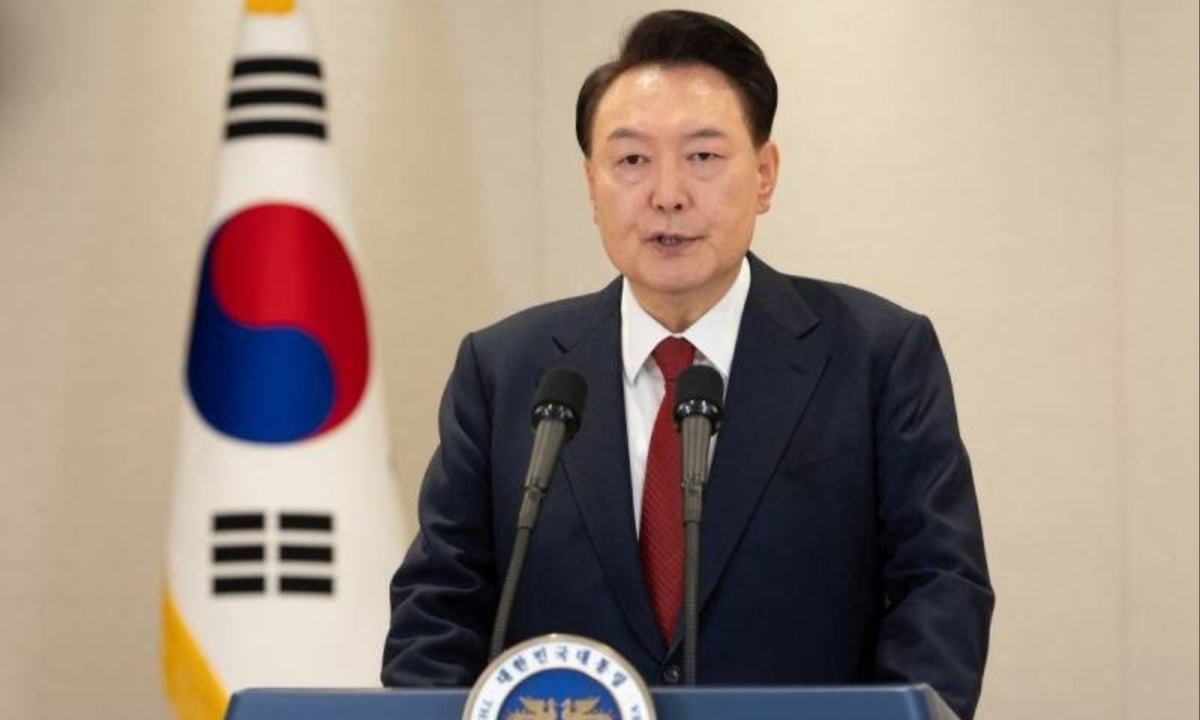South Korean authorities have requested an arrest warrant for suspended President Yoon Suk-yeol in connection with his brief declaration of martial law on December 3. The Joint Investigation Headquarters, consisting of the Corruption Investigation Office for High-ranking Officials (CIO), police, and the Ministry of Defence, accused Yoon of insurrection and abuse of power. The investigation team initiated the request after Yoon ignored three summonses to appear for questioning. A court will now determine whether to issue the warrant, marking a significant moment in South Korean history if approved, as it would be the first time a sitting president faces such a request.
Although Yoon is generally immune from prosecution as a sitting president, he can still face legal consequences for crimes such as rebellion or treason. His lawyer, Yun Gap-geun, has argued that the CIO has overstepped its authority, promising to take formal steps in response. The controversy stems from Yoon’s decision to impose martial law, which lasted only six hours but created a massive political crisis. The imposition of martial law involved heavily armed troops storming the National Assembly, with violent clashes between soldiers and lawmakers, reminiscent of South Korea’s past military dictatorships.

Yoon defended his actions, claiming that the martial law declaration was necessary to deal with “anti-state forces” and opposition obstructionism, particularly from the Democratic Party (DP). The National Assembly voted to impeach Yoon on December 14, suspending him from office in a 204-85 vote. The charges against Yoon are serious, including insurrection, which carries severe penalties such as life imprisonment or the death penalty. The events surrounding the martial law declaration have intensified the political turmoil, with some questioning whether Yoon’s actions were justified or an overreach of executive power.
The crisis deepened on December 27, when the opposition-controlled National Assembly also impeached acting president Han Duck-soo. The impeachment was triggered by Han’s refusal to immediately appoint three justices to the Constitutional Court, which is deliberating Yoon’s impeachment case. This led to Deputy Prime Minister and Finance Minister Choi Sang-mok assuming the role of president. This ongoing political instability has thrown South Korea into a leadership vacuum, with conflicting factions pushing for their own visions of governance.
The Constitutional Court is expected to make a decision on Yoon’s impeachment within six months, determining whether he will be permanently removed from office or reinstated as president. Meanwhile, the court denied a request from Yoon’s legal team to delay proceedings, further complicating the legal battle. The situation remains fluid, as South Korea faces an unprecedented political crisis, with the potential for significant long-term consequences for the nation’s leadership and stability.
